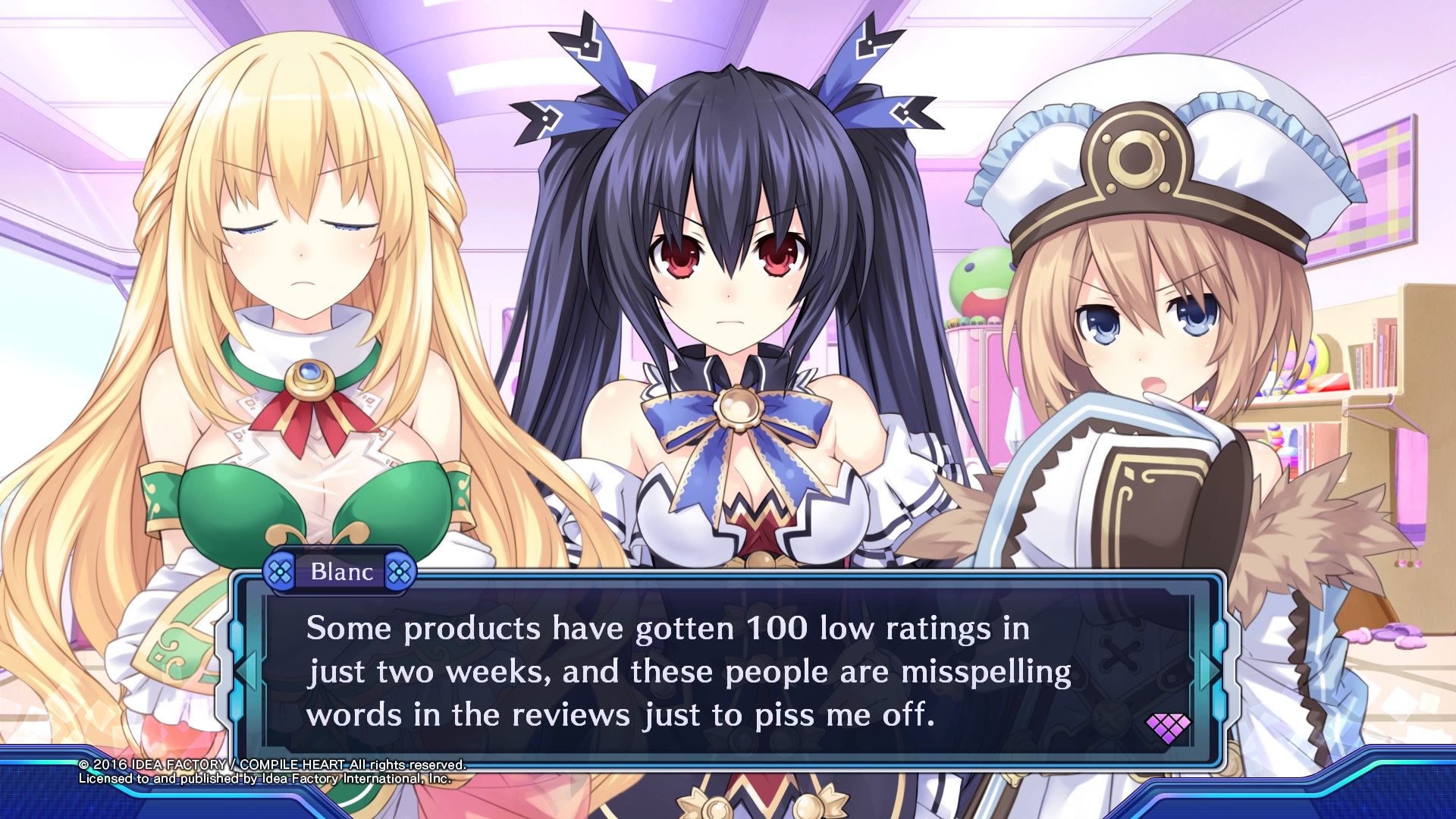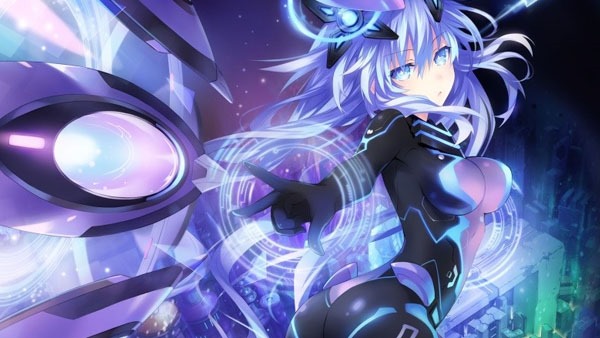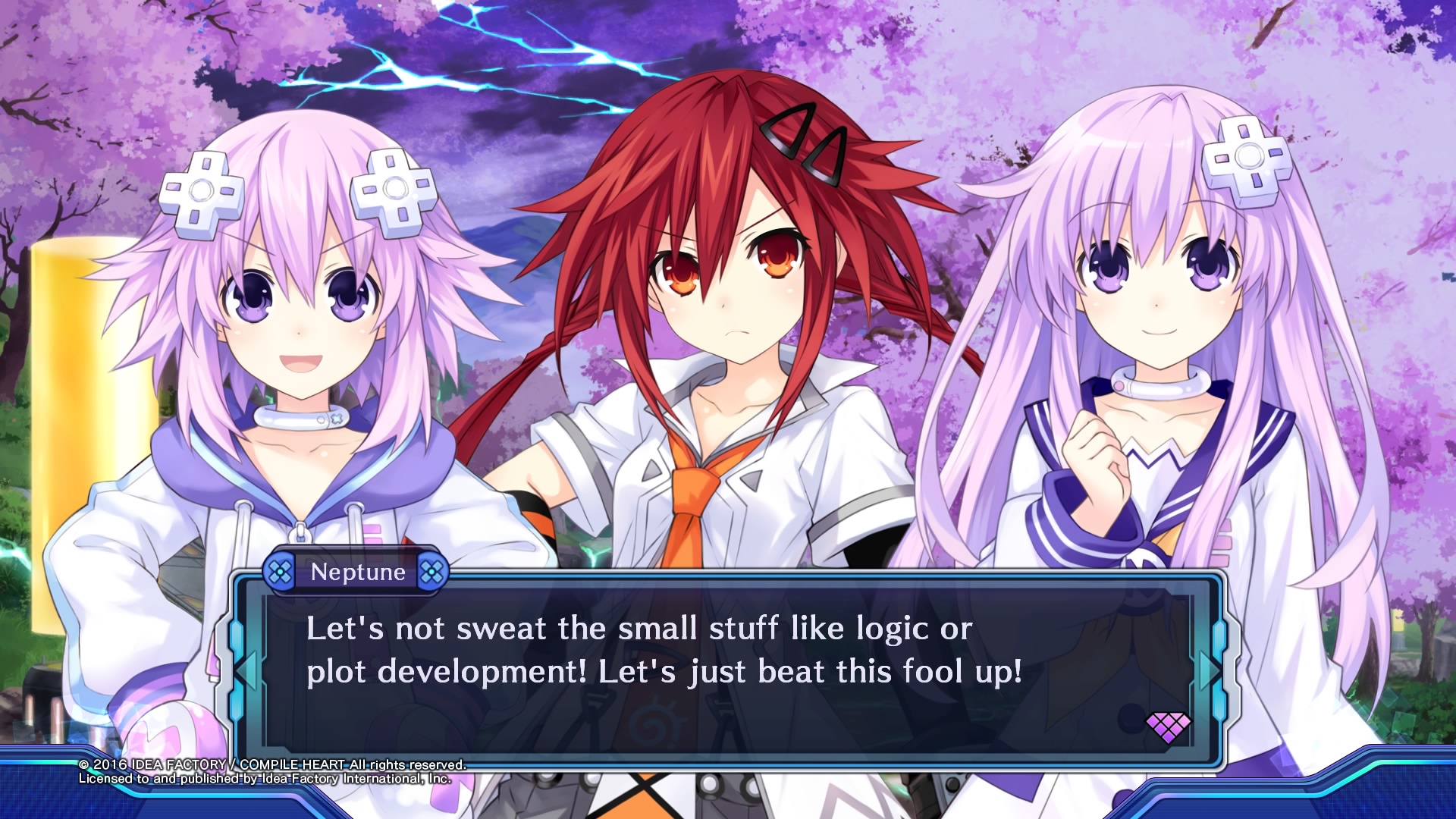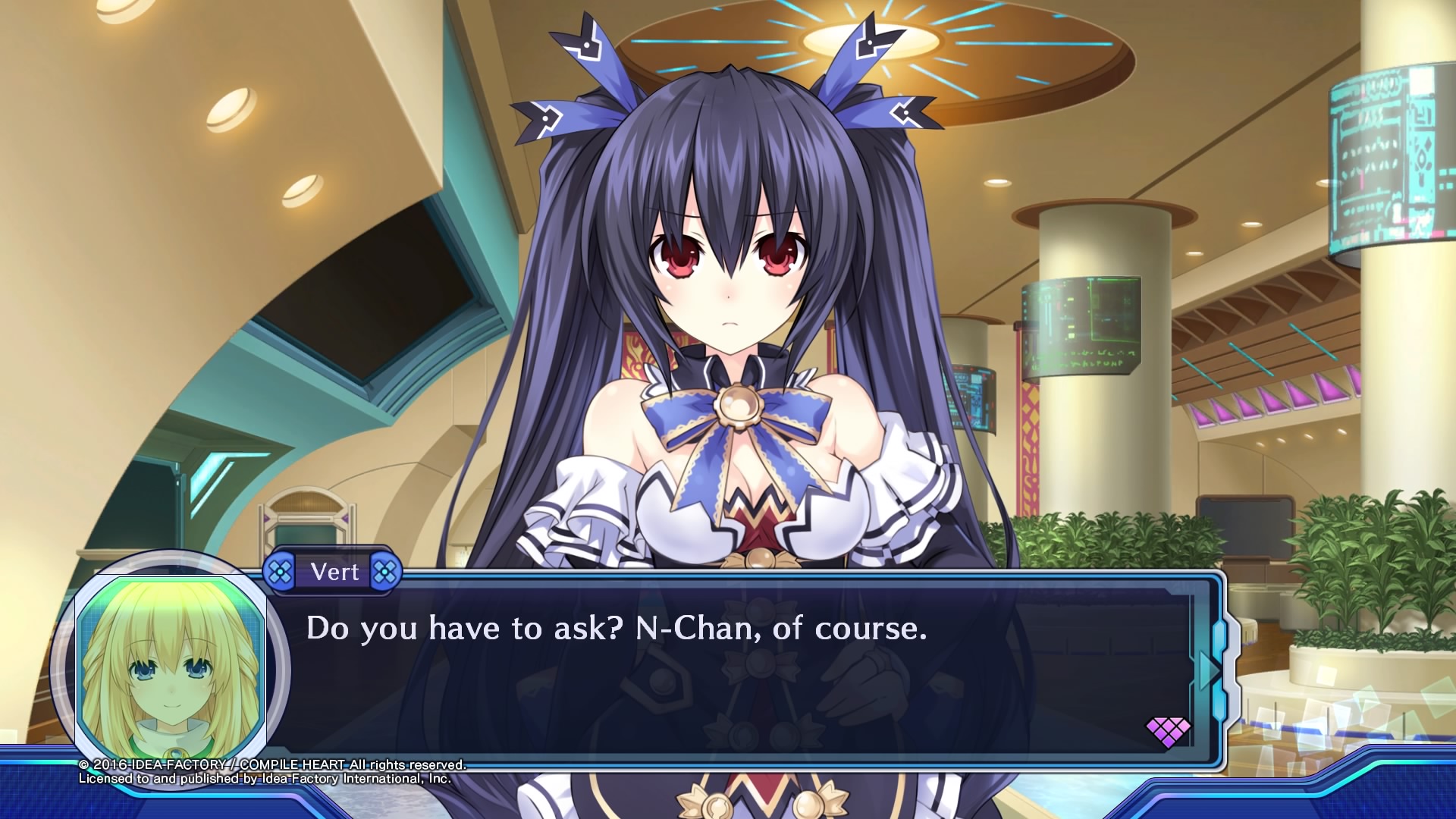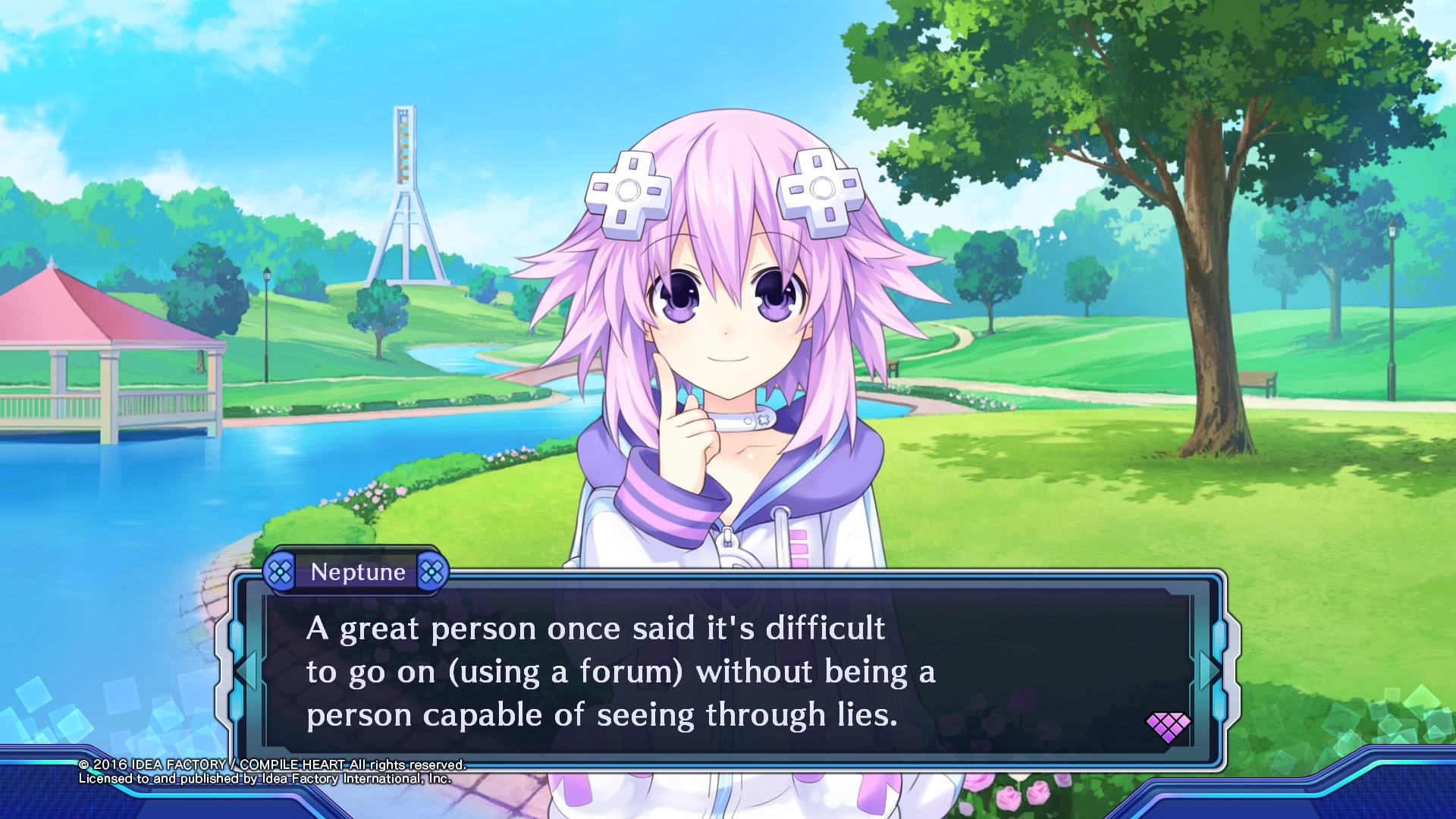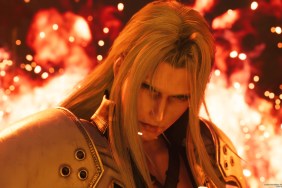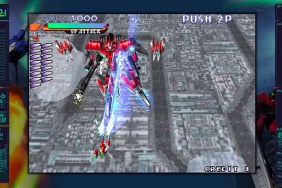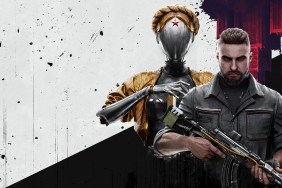True confession: I’ve never played a Hyperdimension game. These games have been heavily recommended to me in the past, and after a few hours of Megadimension Neptunia VII (pronounced “Vee-2,” not “7”), I could see why. The game and characters do not take themselves seriously, it broaches serious topics in both society and the game industry, pokes fun at video game tropes, and incorporates a unique style of turn-based gameplay that requires a bit of strategy, planning, and grinding beforehand. However, each time I am ready to get behind the game and praise how well it tackles issues in gaming culture, it takes a sharp turn to naked town, which sadly made all of its points seem invalid.
Padded Plot
The world of Hyperdimension features CPUs, leaders of various nations of Gamindustri, who can transform into a goddess-like state and do their best to protect their people from harm. The starring CPUs of Megadimension Neptunia VII are still Neptune and her younger sister Nepgear as they travel to various dimensions to save them from destruction.
This particular installment of the Hyperdimension series is broken up into three distinct chapters, each of which is presented as its own game and takes place in an alternate Gamindustri dimension. All of the characters in each dimension directly represent particular gaming companies, and all are unsurprisingly based in Japan. For example, the first chapter, Zero Dimension Neptunia Z, has Neptune and Nepgear warped into a game console marked with an usual swirl (hmmmmmm). There they find themselves in a new dimension called the Zero Dimension where a Dark CPU is tearing the world apart, not unlike how a certain video game console met its demise in our own world.
Each chapter has its own unique story presentation, but ultimately it boils down to the same plot device: save the dimension (or in the case of the last chapter all of the dimensions) from various tortured CPUs. It just wouldn’t be a classic JRPG without this exact same plot device, so it’s hard to mark this repetitiveness against it. And really, this simplicity is needed to make any sort of sense as to what is going on in any of these dimensions, why these girls are CPUs, why they can transform, and why there are so many monsters wreaking havoc at every turn. Then again, it’s a JRPG, and therefore it is best to not ask questions, accept the reality presented, and move on.
As for how it’s presented, Megadimension could use some help coming up with better cutscenes, if these could be called cutscenes. In between combat, the characters slide onto the screen with their dialogue boxes that are sometimes read out loud and sometimes not. The player can skip through them as quickly as they want, and they can be skipped entirely if you’ve already seen them. It is, quite honestly, the most boring method I have experienced for trying to tell a story, and there is no variation among them. It’s run around with occasional combat, click through dialogue boxes, run around, click through, suffer a boss fight, and repeat. The only reason to read through them at all is to somewhat understand what the characters are currently doing and for some hilarious moments. But for the most part, they’re filler and padding to stretch out the story and shower scenes. Yes, I said shower scenes.
Padded Gameplay
At least the combat breaks up the monotony of the cutscenes. It’s the turn-based combat you’d expect from a JRPG, but it focuses more on a character’s position than any other decision with the turn. While it’s still important to wisely choose between healing, defending, and implementing either combos or skill-based attacks, it’s more important to move the character to the most ideal position. Attacking from behind will score more damage than from the front, some attacks can hit multiple enemies if lined up correctly, and sometimes it’s best to move your character far away from the action to give them a breather to heal. As the characters level up and learn new abilities, some group commands can be triggered based upon which form all of the characters are in (goddess or regular), their positions, and how full the EXE meter is, which is filled by landing attacks. It reminded me of a melding between The Last Remnant and the action from the Tales games, the only difference being that the player has no time limit to move and execute a turn.
Because the positioning is important, a battle can’t necessarily be won purely by upgraded gear or grinding for levels. Yes, these definitely help, but coming up with a better positioning strategy will at the very least limp you through a boss fight if you don’t have the best gear or don’t feel like grinding through that dungeon for more XP. Or, in a real case, you accidentally sell a character’s best gear because you didn’t realize that they unequipped it when they temporarily left your party. Really, who doesn’t take their gear with them? Any time I lost a battle or a boss fight, it was typically because I didn’t plan how to position the girls very well, and rarely because I hadn’t leveled up enough. Grinding in any game is bad enough, and since there really aren’t any side missions to assist with grinding, the idea of positioning was a nice cushion to avoid countless hours of repeat dungeon-crawling.
That said, this game has some of the worst boss-fight padding ever presented in a JRPG. It’s one thing for a particular boss to have different phases in a fight; it’s another to have to fight the same boss over six times in one chapter. It’s worse than the original Frieza saga from Dragonball Z. In Zero Dimension, I never believed I was fighting the final final boss because I had already battled her three times in a row, not to mention the other times we clashed. When the credits rolled, I still wasn’t sure it was over until the Hyperdimension Neptunia G menu screen popped up. These boss fights might have been tolerable if much changed between them, but they did not in any significant manner. In the end, it was a typical JRPG boss fight each time—slowly chip away at the HP meter, take breaks for healing, build your special meter to unleash a powerful attack, rinse, and repeat (that next shower scene is right around the corner!).
One Step Forward, Two Steps Back
The Hyperdimension series has been known for its insight and parody into the gaming industry and culture, and Megadimension is no exception. The dialogue often tackled serious issues in the gaming industry, with game tropes, and gaming culture, and it did so with hilarity and often brilliant quips. I wish more games would broach these issues so blatantly instead of hiding behind pretentious and artsy guises.
And then, just like that, all seriousness is wiped away with the next naked scene. It’s amazing how often it would happen just as soon as it would make a brilliant point. One second, it’s absolute genius taking down the notion that a girl is worthless if she’s flat-chested; the next, it’s naked time where we check out just how developed each girl is. When the girls transform, they lose even more clothing and the breasts grow uncomfortably larger. How, exactly, are we supposed to take these deep messages seriously when they’re immediately covered in sudden and very unnecessary moments of supreme cleavage? What purpose do these scenes serve? What purpose does the scantily clad clothing serve?
Wait, no, don’t answer. I’m afraid I don’t want to know.
Megadimension Neptunia VII is a mixed bag, with great combat elements and parody sadly shuffled together with overly padded plot, repetitive boss fights, and boring story presentation. All of the bad could be overlooked with how well it analyzes and tears down the low points of gaming culture, but then it sinks itself just as low with copious and pointless bewbage.
Review copy of Megadimension Neptunia VII provided by publisher. Reviewed on PlayStation 4. For more information about scoring, check our Review Policy here.
-
Fun combat with unique strategy requirements
-
Deep insight and parody into gaming industry and culture
-
Quite funny with laugh out loud moments
-
Boring story presentation
-
Padded plot
-
Too many repeat boss fights
-
Pointless nudity of young girls
Megadimension Neptunia VII Review
-
Easiest Trophy Ever
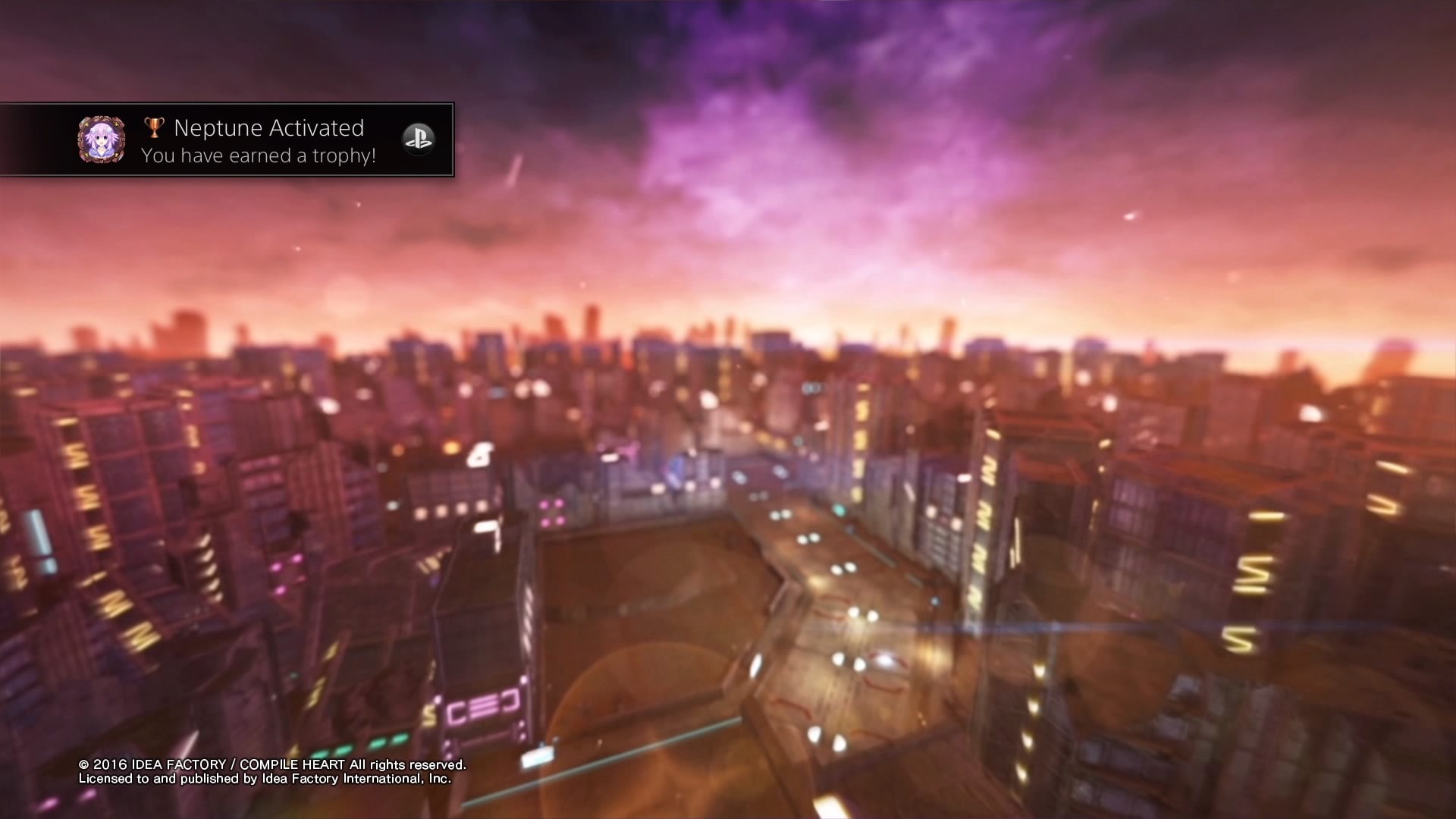
-
First chapter is a new game. No, really.
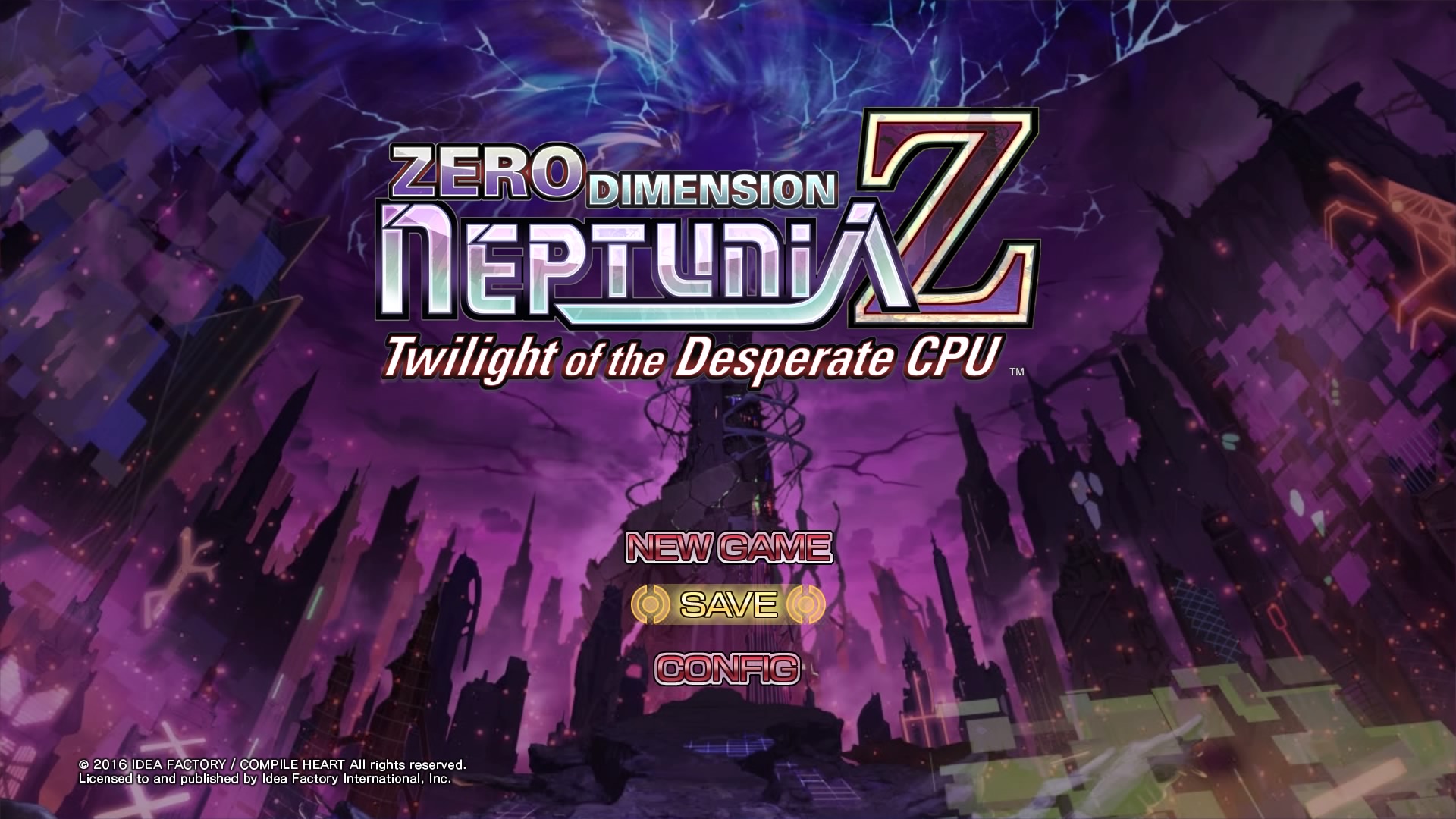
-
The meta is strong.
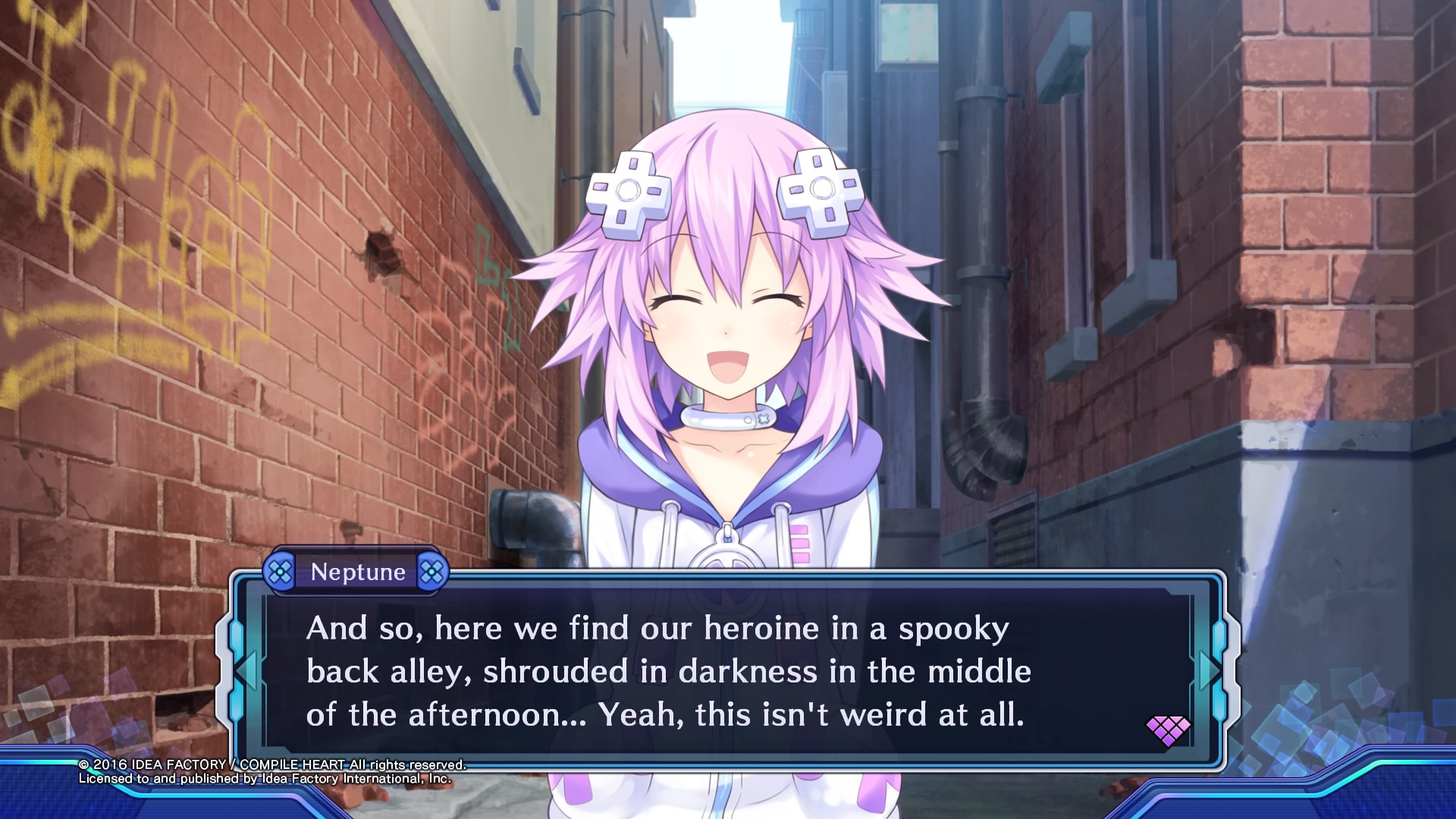
-
Maybe it's thinking?
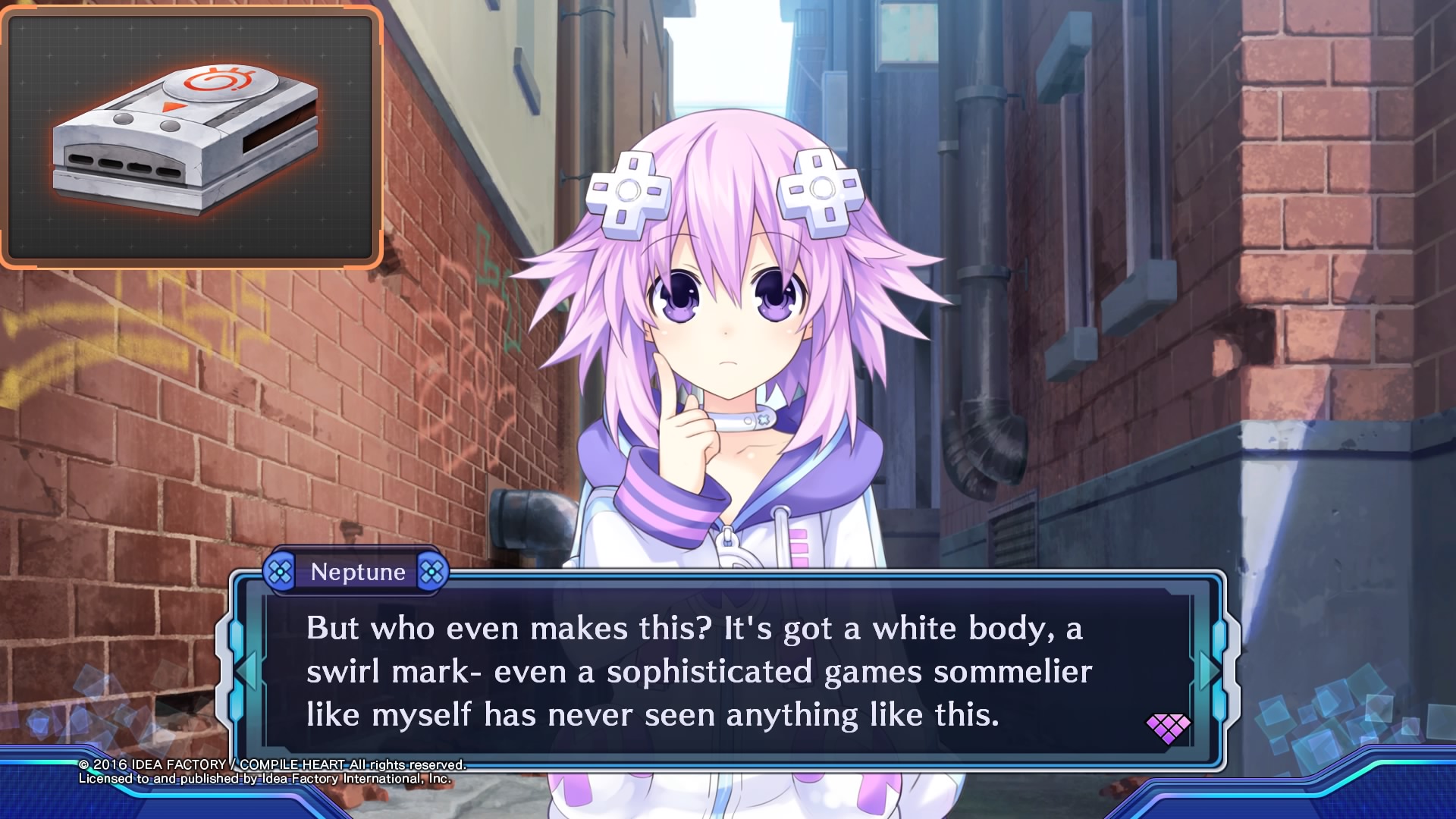
-
True story.
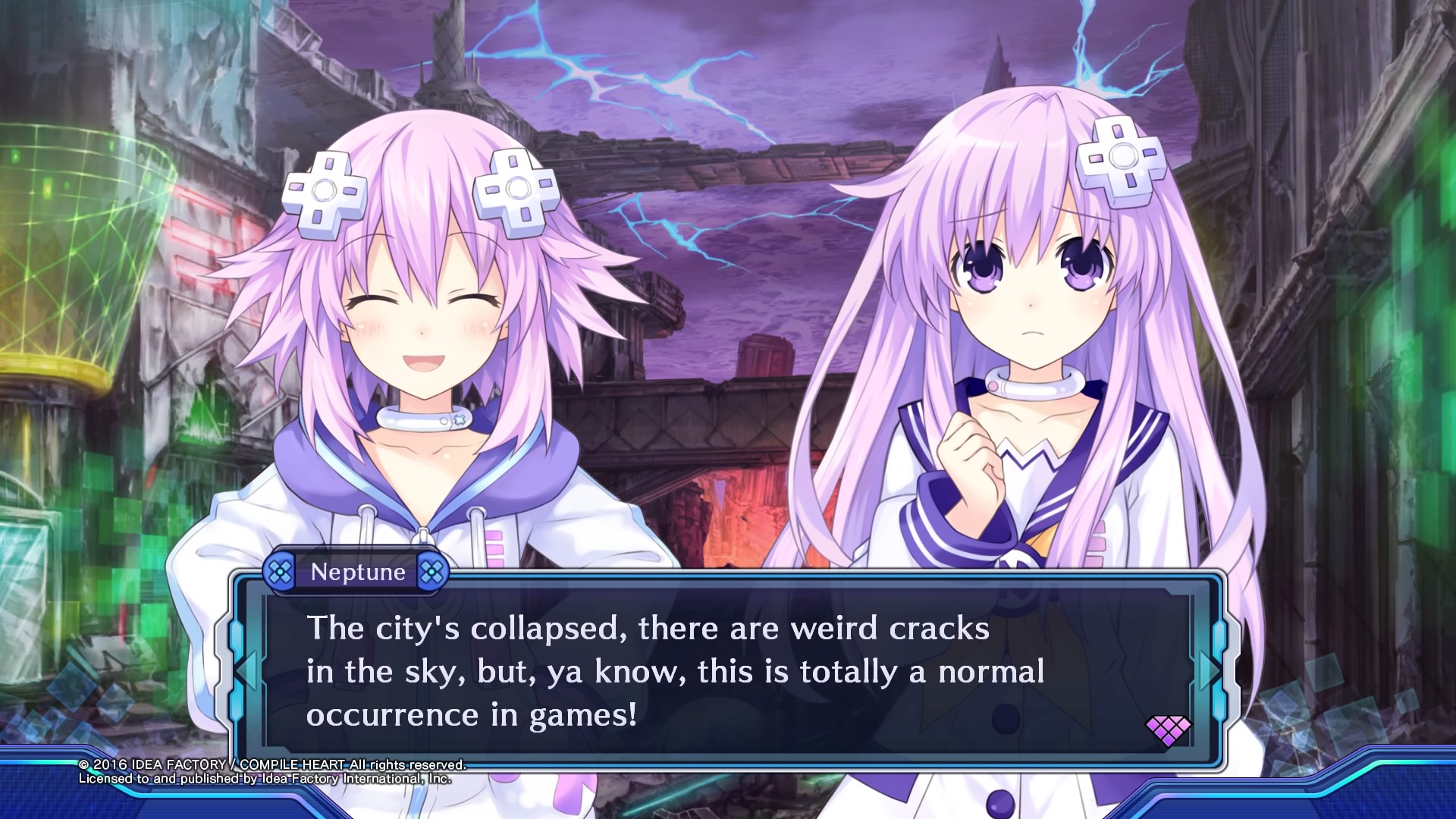
-
Totes.
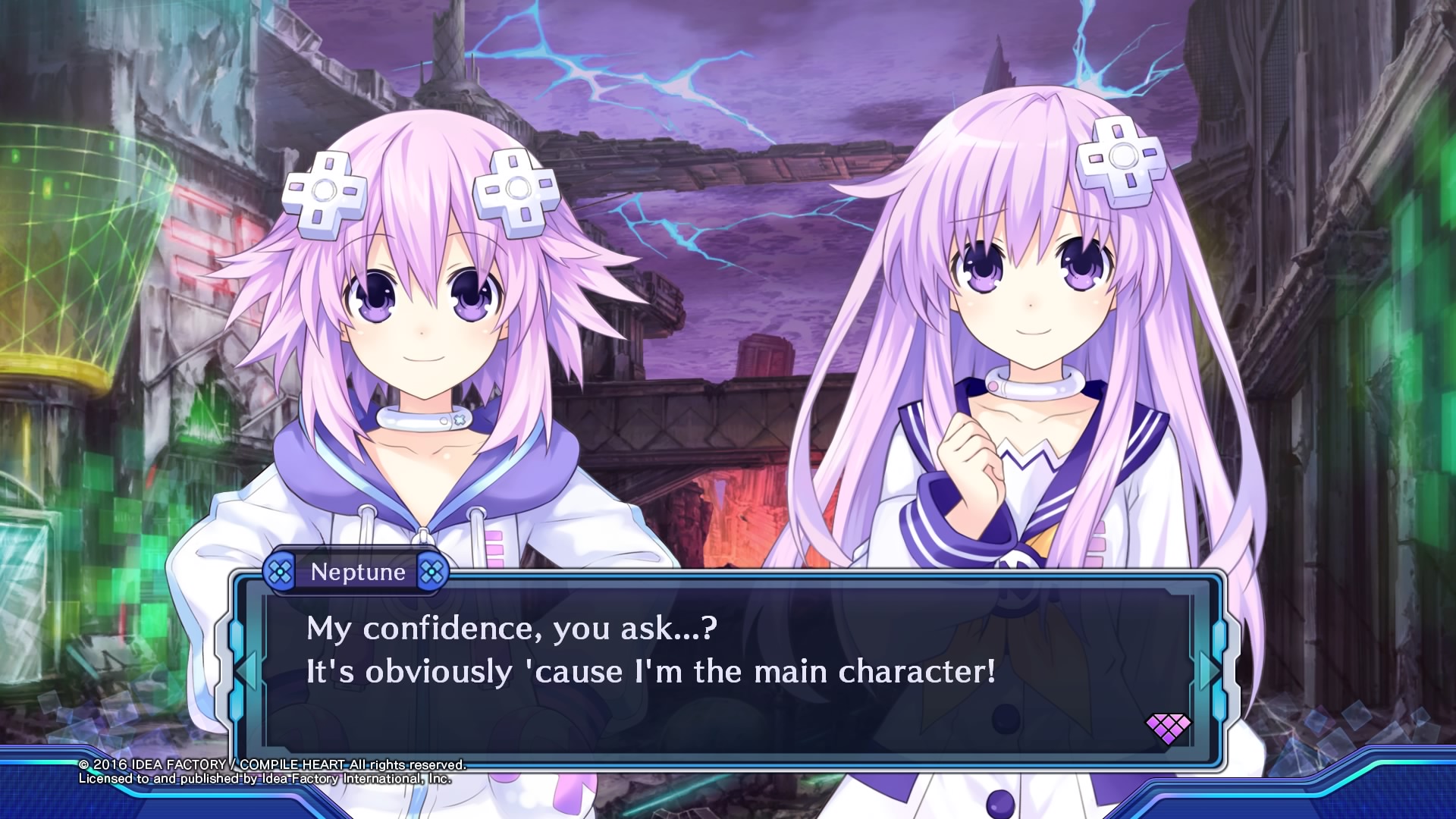
-
Not cool.
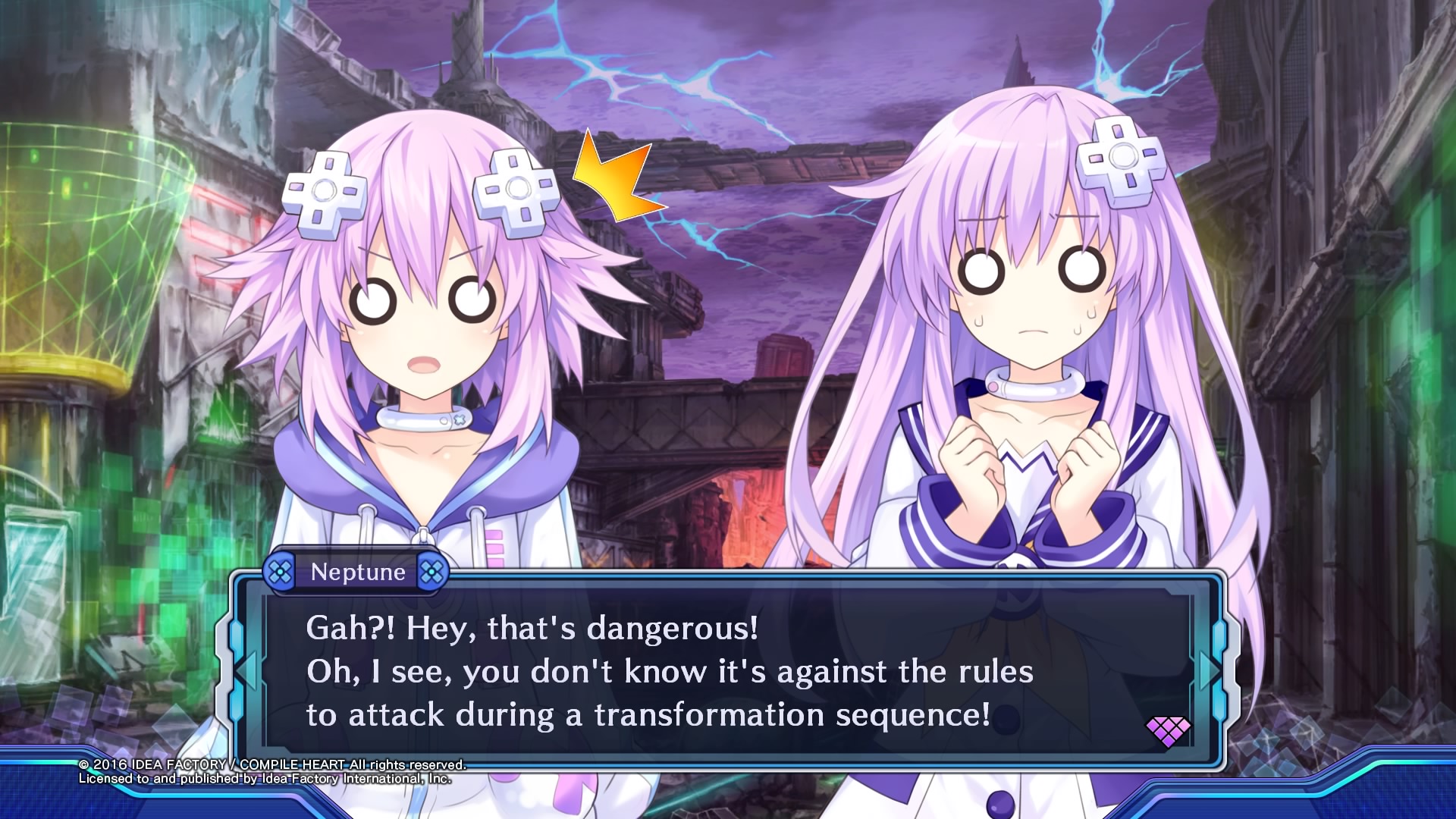
-
Pass.
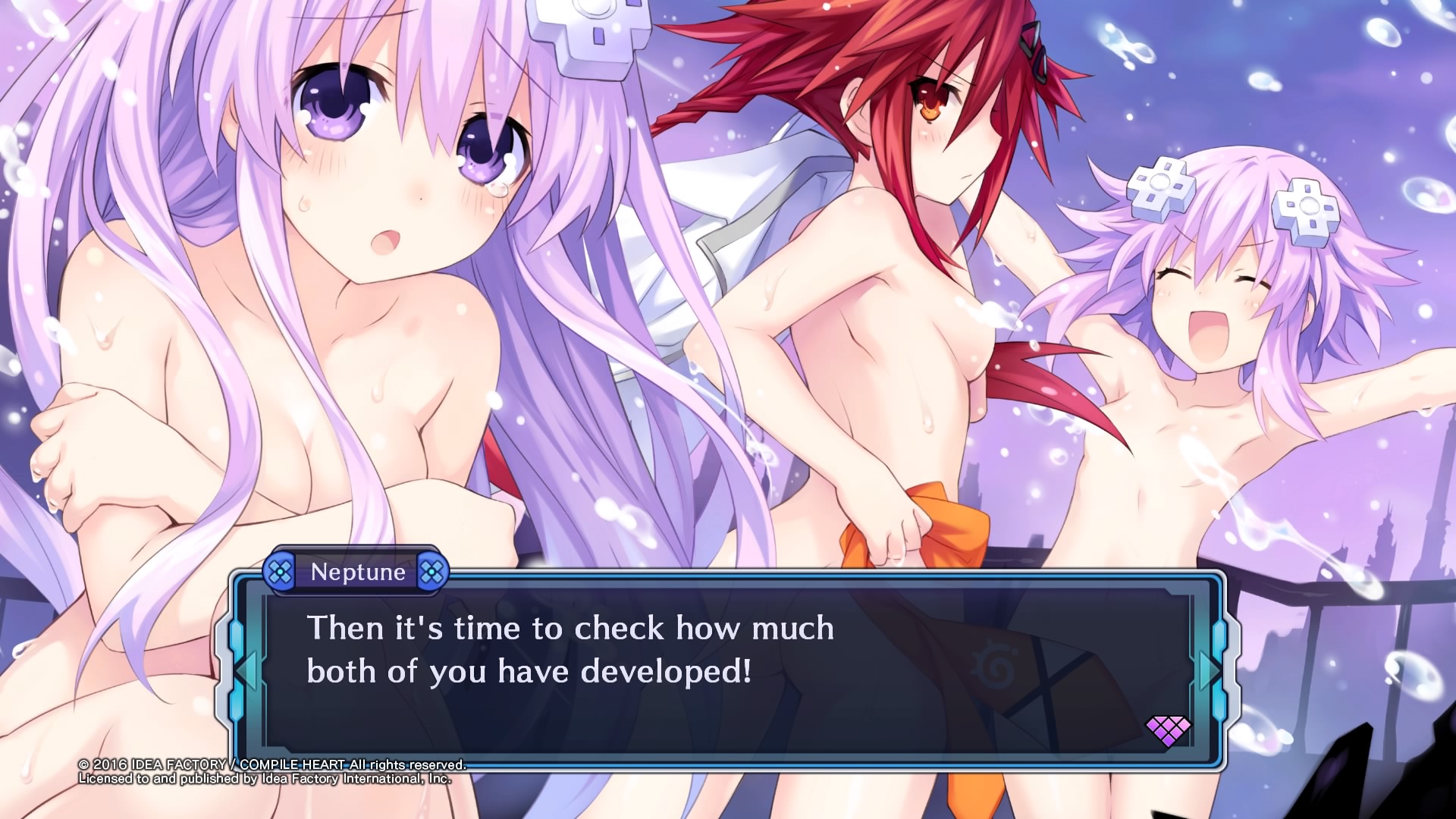
-
And the meta continues.

-
Flip phone?
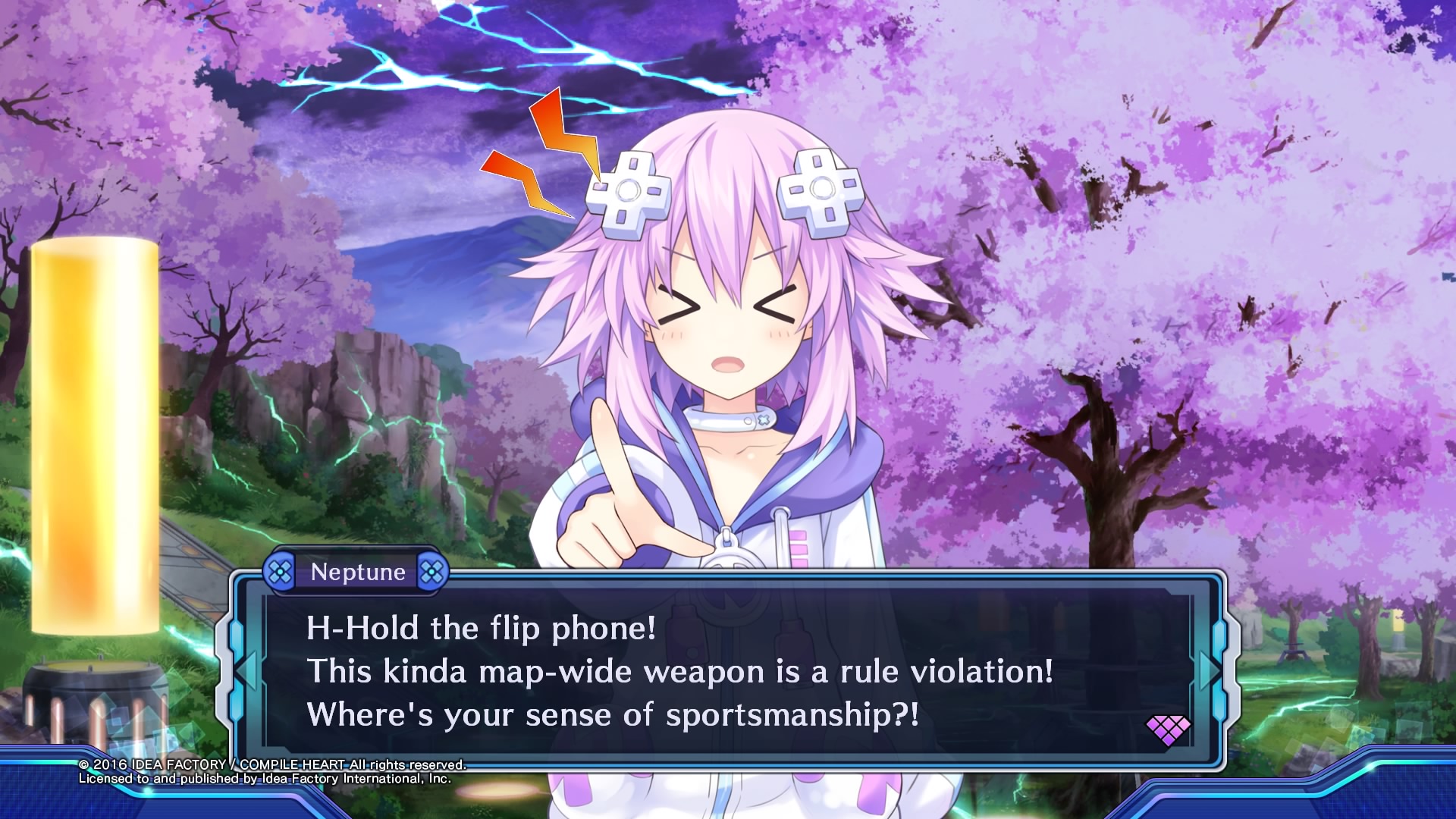
-
Oh that pesky logic.
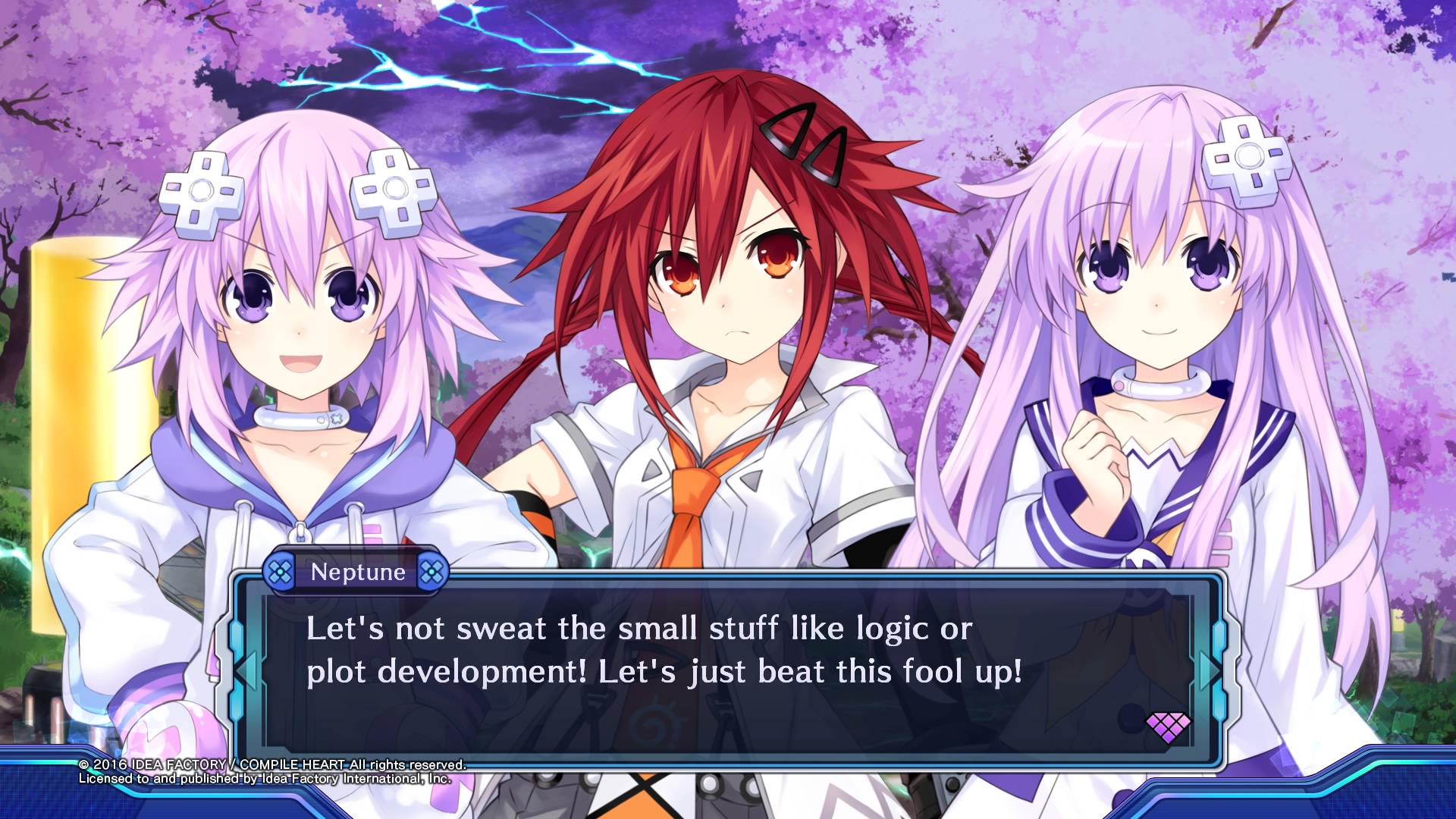
-
Or grad school poetry class.
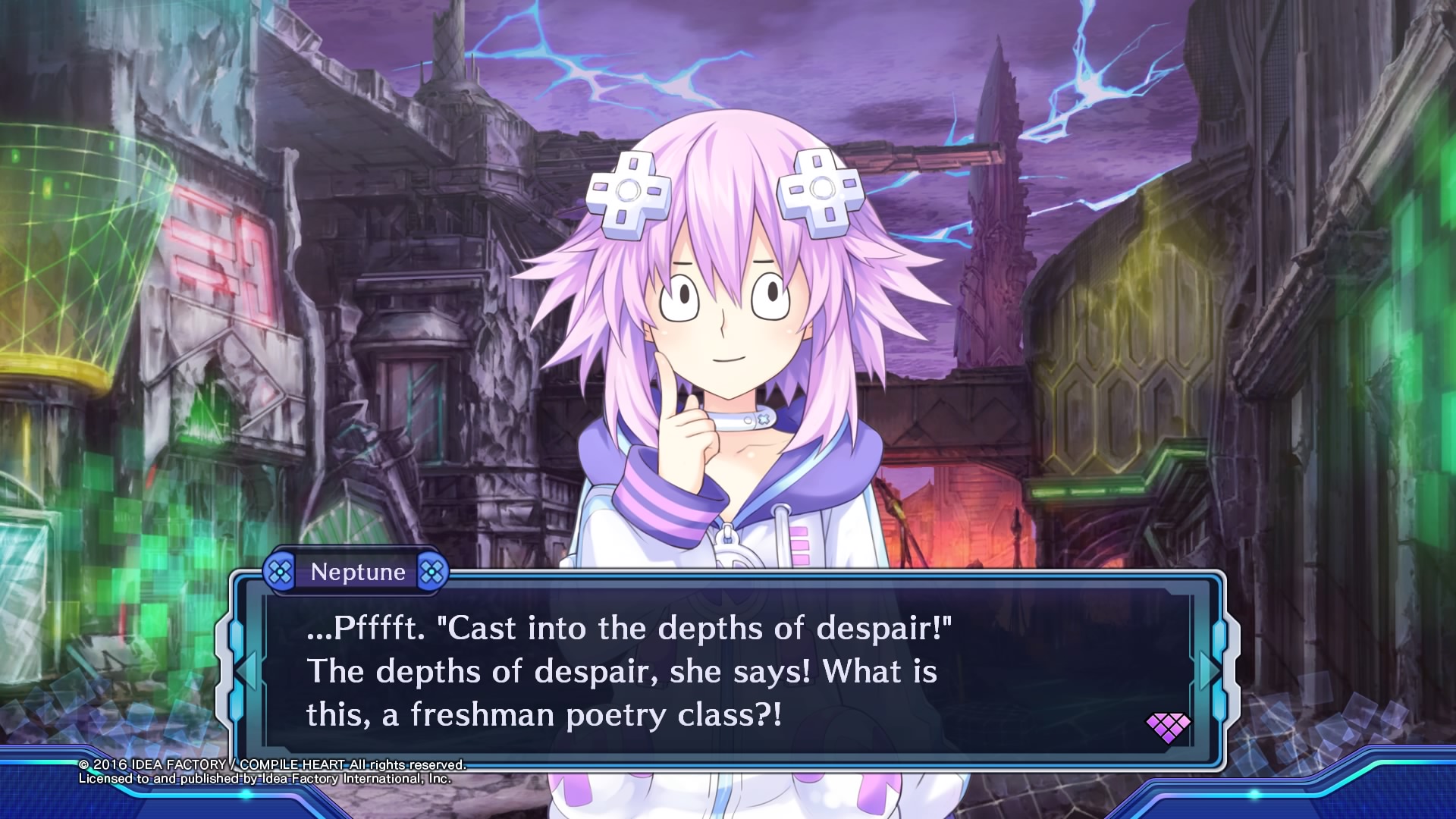
-
Is that a Roomba?
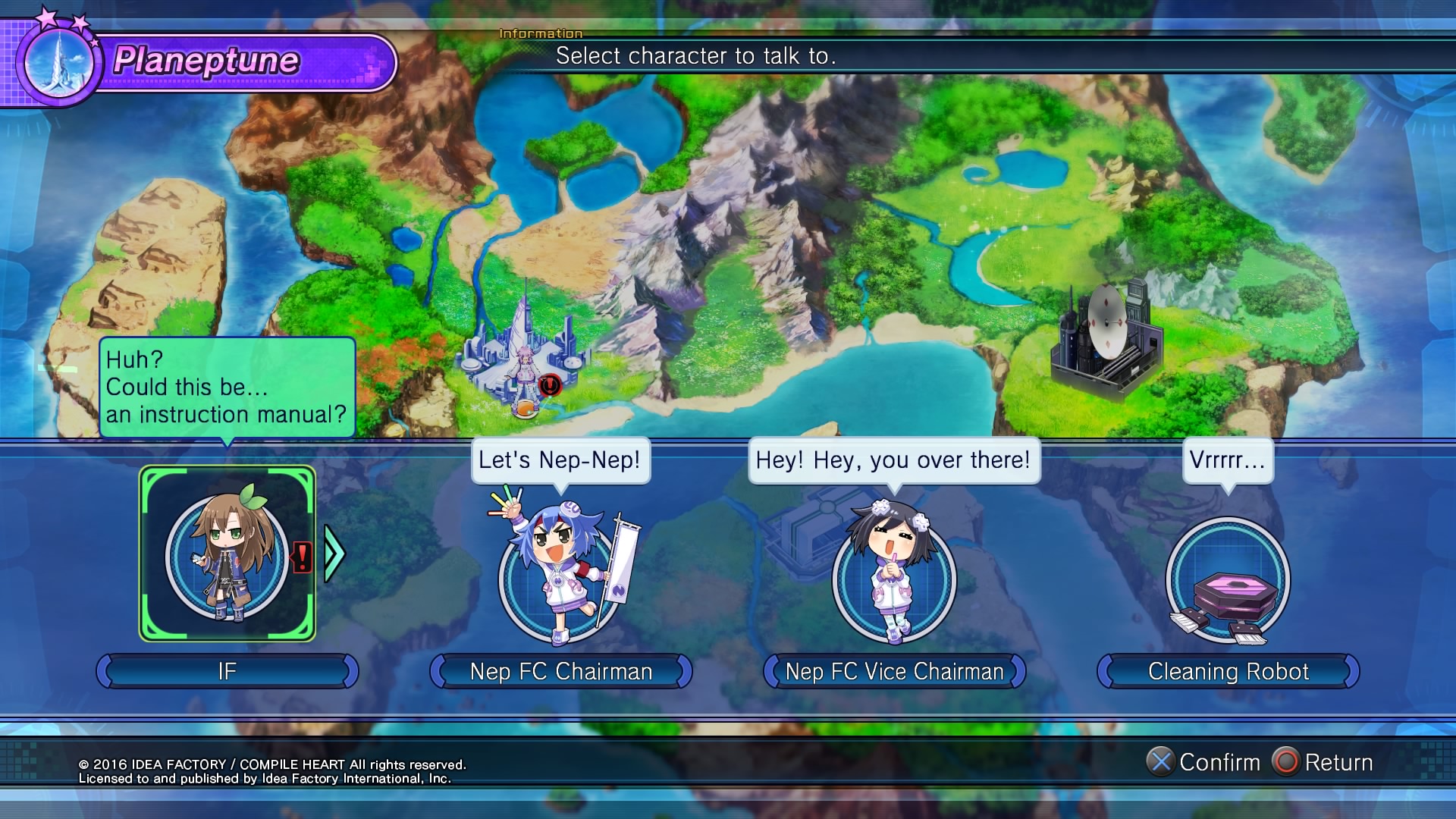
-
Ack! No!
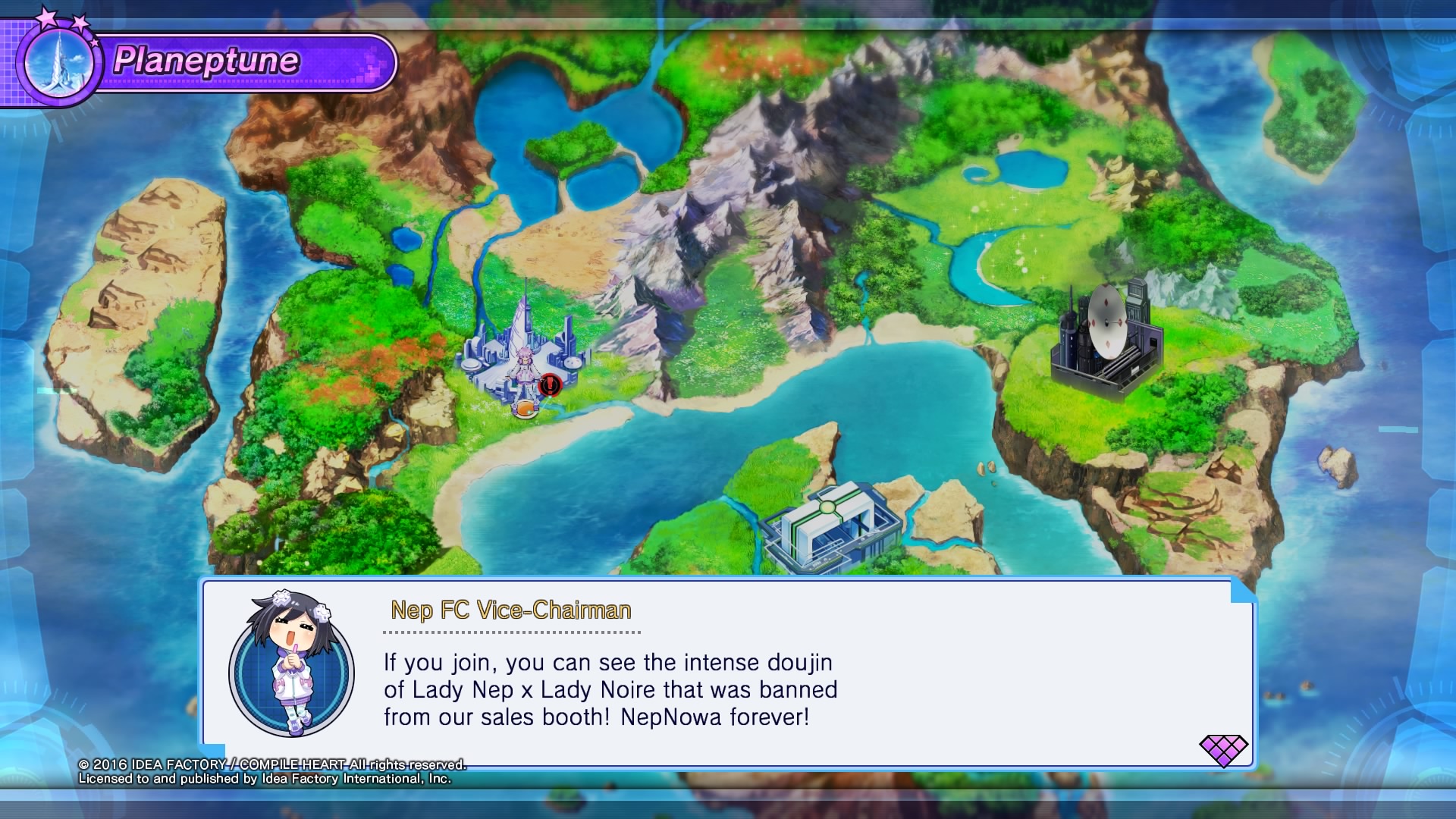
-
So there ARE men in this game!
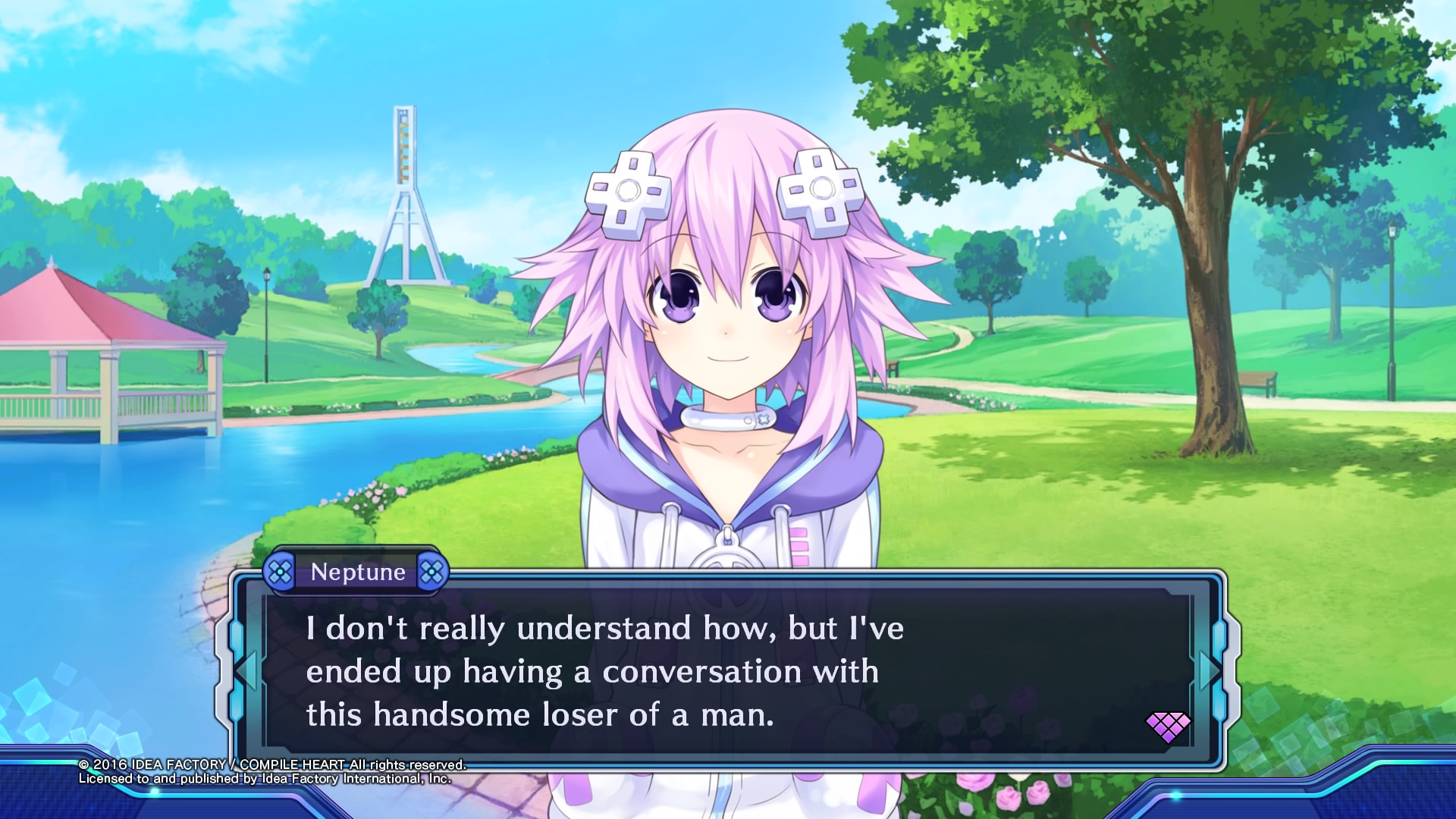
-
Now we're hitting the most important elements of women's credentials.
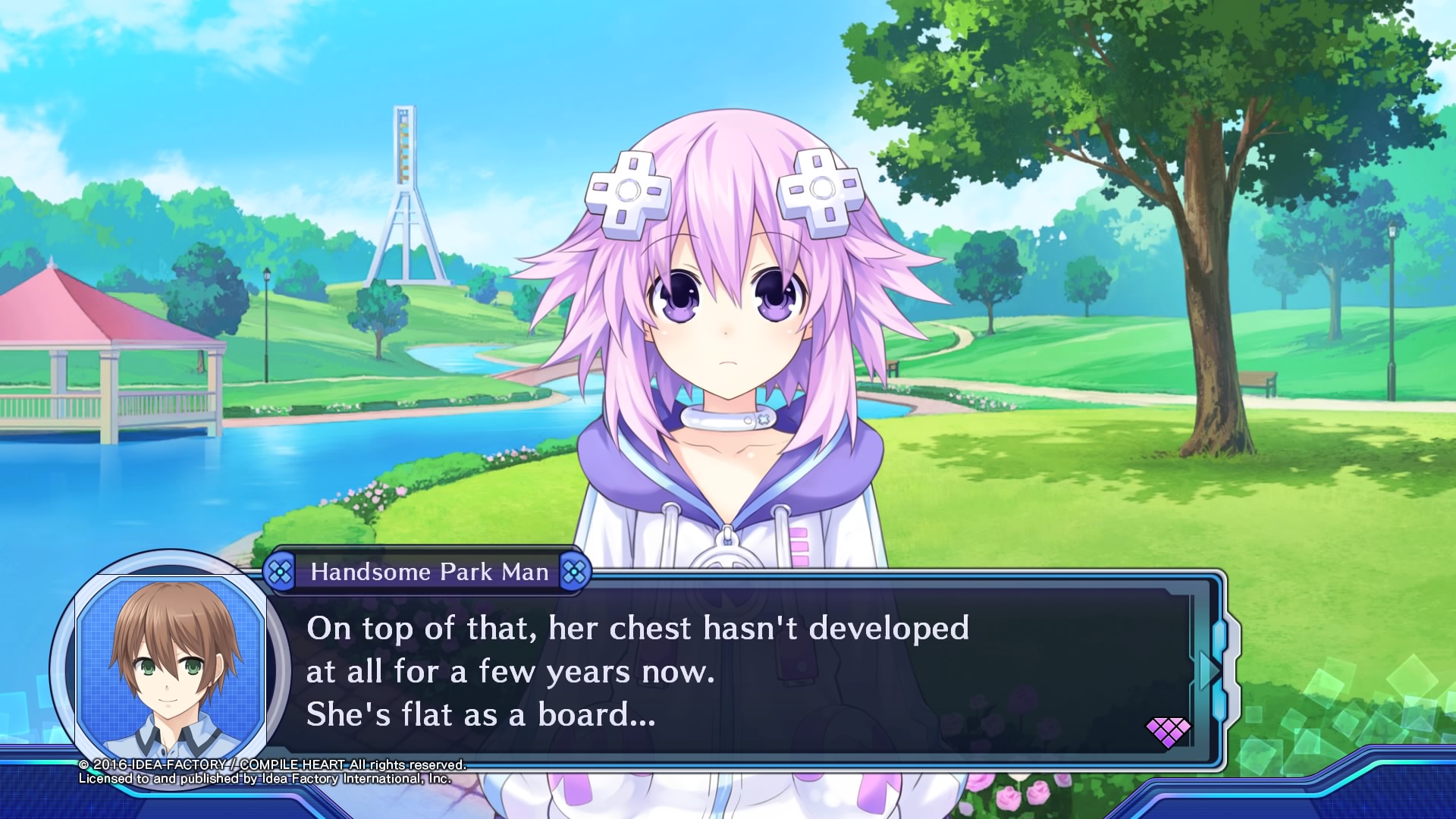
-
So wise. Neptune is so forum-wise.
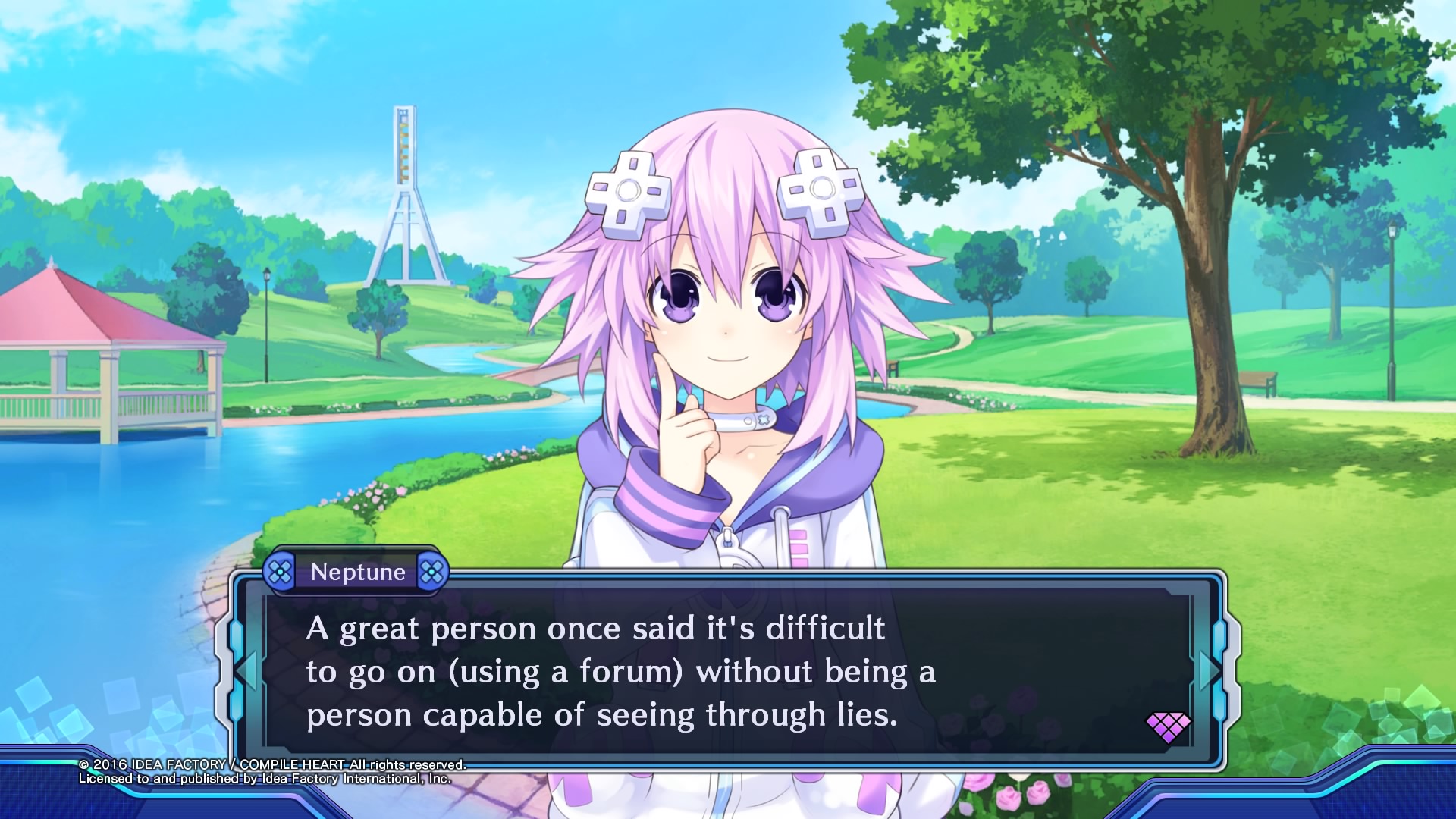
-
NO IDEA what she could be referring to. NONE.
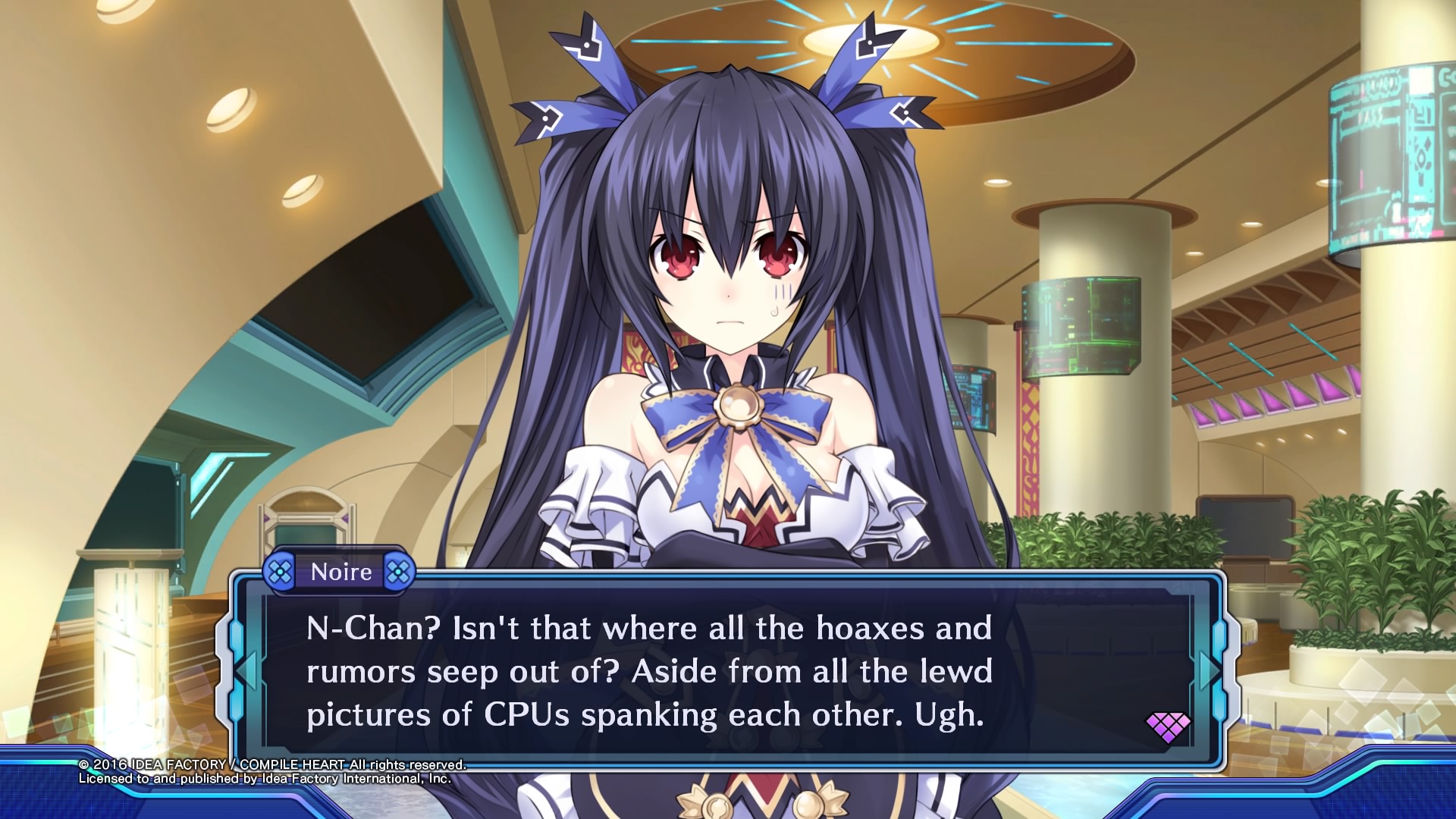
-
I feel your pain, just like your corsets surely do.
